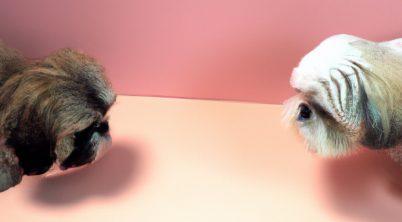Pekingese dogs are cherished for their companionship and unique appearance; however, like any breed, they face particular health challenges. A significant concern among these is their propensity for dental problems. The distinguishing brachycephalic facial structure of the Pekingese contributes to dental crowding, leading to an increased risk of periodontal issues. Poor dental hygiene can exacerbate the situation, causing tartar buildup, gum disease, tooth decay, and ultimately tooth loss if not proactively managed.
The overall health of a Pekingese can be significantly affected by dental diseases. Inadequate dental care often leads to oral bacteria entering the bloodstream, potentially compromising other vital organs and leading to more serious systemic health issues. Nutritional habits, genetics, and proper dental hygiene practices play a critical role in the prevention of such complications.
Given the breed’s susceptibility, regular dental check-ups and preventive care are essential for maintaining a Pekingese’s oral health. Initiatives such as routine teeth brushing, using dental chews, and professional cleanings can help mitigate the risks of dental diseases. It is also important for Pekingese owners to be vigilant for symptoms of dental discomfort, as early detection and treatment can improve outcomes significantly.
Table of Contents
Understanding Pekingese Dental Structure
Pekingese dogs, characteristic of the brachycephalic breeds, have a distinct dental structure tightly compacted due to their short snouts. This predisposition often leads to unique dental challenges.
Their adult teeth, amounting to 42, must fit into a smaller oral cavity, while baby teeth, often numbering 28, may retain longer than usual before they are replaced. This phenomenon raises the propensity for dental misalignment and related problems as adult teeth emerge.
Occlusion, the manner in which Pekingese teeth meet when the jaws close, is often abnormal. Instead of neat interlocking, their teeth may overcrowd or twist, not only affecting the aesthetics but also the functionality. It is not uncommon for a Pekingese to have an underbite where the lower teeth protrude beyond the upper teeth, contributing to challenges in maintaining oral hygiene.
Given this complexity, dental care is paramount. Regular cleaning and check-ups can alleviate or prevent issues stemming from the unique structure of Pekingese teeth. Potential consequences of neglect include tartar build-up, gum infections, and increased risk of tooth loss.
Key Points:
- Adult Teeth: 42 teeth that fit in a smaller than usual oral space.
- Baby Teeth: Typically 28, may be retained longer and contribute to misalignment.
- Misalignment and Occlusion: Common due to the compact jaw, leading to an underbite.
- Brachycephalic Breed Factor: Short snout of Pekingese affects dental structure.
Owners should stay vigilant and consult with a veterinarian to understand and address the dental needs of their Pekingese, ensuring their beloved companion maintains optimal dental and overall health.
Common Dental Issues in Pekingese
Pekingese dogs are susceptible to a variety of dental issues, many of which are preventable with proper dental care. These common issues, if left unaddressed, can lead to more severe health problems.
Periodontal Disease
Periodontal disease is the most prevalent dental problem in Pekingese dogs. It begins when plaque builds up and hardens into tartar at the gum line, causing inflammation known as gingivitis. If untreated, it can result in tooth loss and affect overall health.
Tooth Decay
Though less common than in humans, tooth decay can affect Pekingese. It occurs due to the destructive effects of bacteria on the tooth enamel which, if unchecked, can lead to painful cavities and infections.
Tartar Build-Up
Tartar, or dental calculus, is a hard yellowish deposit that forms on teeth due to plaque mineralization. In Pekingese, regular teeth cleaning is essential to prevent tartar accumulation which can lead to more serious dental diseases.
Gum Inflammation
Gum inflammation, or gingivitis, is an early sign of periodontal disease. It’s characterized by red, swollen gums that may bleed easily. Good oral hygiene can help prevent its progression into more serious conditions.
Loose Teeth
Loose teeth in Pekingese can result from advanced periodontal disease. They may experience discomfort and difficulty eating, which underscores the importance of early intervention and consistent dental care.
Symptoms and Diagnosis of Dental Problems
When a Pekingese develops dental issues, certain symptoms are commonly observed. These indicators can suggest that it is time for a thorough veterinary examination to ascertain the presence and severity of dental problems.
Symptoms:
- Bad Breath: Persistent foul odor from the mouth may be a sign of bacterial overgrowth or decay.
- Discomfort: Sensitivity to touch around the mouth or reluctance to play with chew toys can indicate dental pain.
- Swollen Gums: This symptom, often accompanied by redness, can signal inflammation or infection.
- Loss of Appetite: A Pekingese with dental issues might eat less due to pain or discomfort while chewing.
- Difficulty Chewing: Changes in eating habits or a preference for softer foods can be a clue to dental discomfort.
To diagnose these conditions accurately, a veterinarian performs a detailed oral examination, often aided by dental X-rays to assess the health of the teeth below the gumline. In some cases, blood tests may be necessary to rule out systemic causes of oral health symptoms. Early diagnosis is crucial for managing dental diseases effectively and to prevent more serious complications that can affect a Pekingese’s overall health.
Preventative Dental Care Practices
Effective preventative dental care practices are a cornerstone in maintaining a Pekingese’s dental health. These practices not only safeguard against dental issues but also promote overall well-being.
Regular Brushing
Regular brushing is paramount for maintaining oral hygiene in Pekingese dogs. Veterinarians recommend daily brushing to remove plaque before it hardens into tartar, which is a key factor in the prevention of periodontal disease. Ideally, owners should use dog-specific toothbrushes and toothpaste.
Dental Check-Ups
Routine dental check-ups by a professional are vital. They should examine a Pekingese’s teeth and gums at least once a year, ensuring early detection of potential issues. These check-ups allow for prompt treatment and can prevent advanced dental problems that could lead to tooth loss.
Healthy Diet
A healthy diet contributes significantly to oral health. Foods specifically designed for dental health can reduce plaque and tartar build-up. Owners should consult their veterinarian to tailor a diet that supports dental care for their Pekingese.
Dental Chews and Toys
Incorporating dental chews and chew toys into a Pekingese’s routine can aid in cleaning teeth and massaging gums. These items are formulated to reduce plaque and stimulate the gums, which is an auxiliary benefit to the primary dental care practices.
Advanced Dental Treatments and Considerations
When dental issues in Pekingese escalate beyond what daily brushing or dental chews can manage, owners should seek professional help. Veterinarians are equipped to handle advanced dental treatments which often require anesthesia to ensure the safety and comfort of the dog during procedures.
Surgical Interventions In advanced cases of periodontal disease, surgery might be necessary. Surgical options include:
- Tooth extractions
- Gum tissue grafts
- Jawbone reconstruction
These procedures are undertaken to manage severe dental issues and mitigate the risk of systemic effects on organs like the kidney, heart, and liver.
Anesthesia Considerations Before anesthesia, a full health evaluation is essential to assess the Pekingese’s fitness for surgery, given their susceptibility to organ diseases. Pre-anesthetic exams typically include:
| Test Type | Description |
|---|---|
| Complete Blood Count (CBC) | Evaluating overall health indications |
| Serum Biochemistry | Assessing kidney and liver function |
These tests are crucial to minimize risks and ensure the dog’s immune system is robust enough to handle anesthesia and associated treatments.
Preventive Measures Regular dental check-ups are vital to identify issues before they necessitate advanced treatment. Early detection and preventive care can often avoid the need for surgery and can aid in the long-term health management of the Pekingese, especially considering their predisposition to systemic diseases linked with dental problems.








